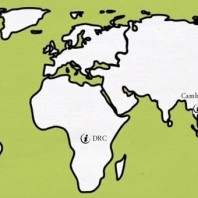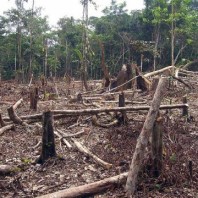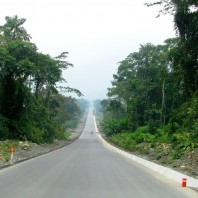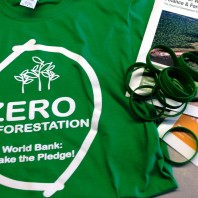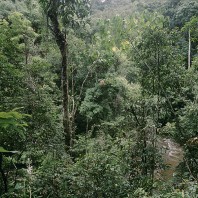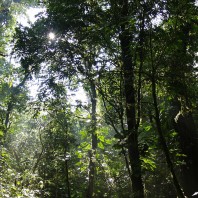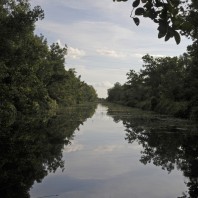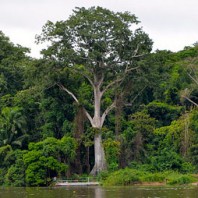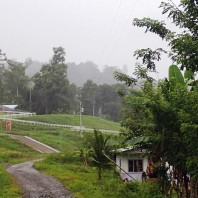The World Bank Group is the largest source of multilateral finance for forests, and a standard setter for international finance broadly. However, the Bank invests significantly more each year in sectors demonstrated to be primary drivers of deforestation such as agriculture, energy and mining, and transportation; than what it invests in forests. The Bank Information …
Sixteen faith groups have sent a letter to World Bank President Jim Yong Kim, calling on the Bank to adopt a Zero Deforestation Policy: The Paris climate agreement is meant not only to begin a transformation of the world’s energy systems, but also to save the world’s forests. Dozens of countries put forests at the center …
World Bank president urged to commit to Zero Deforestation declaration, speak out on deforestation at COP21 in Paris Conserving forests is one of the most important climate change mitigation solutions, and is essential to addressing the World Bank’s twin goals of eliminating extreme poverty and promoting shared prosperity. As many progressive governments and private sector …
Conserving forests is essential to achieving the World Bank’s twin goals of ending extreme poverty and boosting shared prosperity. A high percentage of the world’s impoverished people source food, medicine, building materials and fuel-wood directly from forests, and depend on the forest ecosystem services of water provision and purification, flood prevention, and climate change adaptation …
BIC recently published two reports analyzing the impact of World Bank and IFC finance on forests and forest peoples around the world. These publications outline the findings of BIC’s review of World Bank Group public and private sector lending from the perspective of investments both within the forest sector, and in the primary sectors that …
A submission from 20 civil society organizations from Africa, Asia, Latin America, Europe and the United States, underscores civil society concerns about the unprecedented dilution of World Bank safeguards for biodiversity, forests and resource-dependent communities.
A new case study on the development of a national safeguard system for REDD+ in Mexico was just published by Bank of Information Center (BIC), the Center for International Environmental Law (CIEL), and Mexican Environmental Law Center (CEMDA).
Photo: Mark Garten/UN (CC BY-NC-ND 2.0) En español | En français Nominations for UNREDD and FCPF Civil Society Observers The Bank Information Center is pleased to announce the nomination lists for the Civil Society Observer positions at the UNREDD Programme and the Forest Carbon Partnership Facility. Civil Society Observers attend the meetings of the UNREDD …
Congratulations to Lloyd Gamble and World Wildlife Fund for being selected as the new Northern CSO Observer to the FCPF Readiness and Carbon Funds. Voting for the new observer closed on Friday, March 14th with two candidates – World Wildlife Fund and Carbonfund.org Foundation, Inc – up for the position. All duties associated with the …
The Bank Information Center, in collaboration with the Mesoamerican Alliance of Peoples and Forests, will hold the “Second International Workshop on Social and Environmental Safeguards in Indigenous Territories and Forest Communities of Mesoamerica” in San Jose, Costa Rica on March 15th and 16th. The main objective of the workshop is to facilitate discussions of regional safeguards principles …

